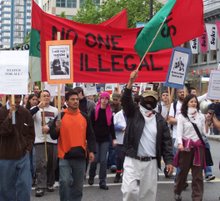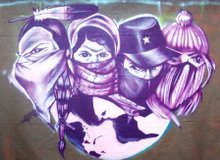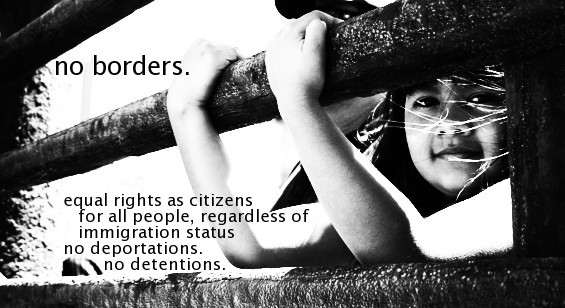Author and radio host Deepa Fernandes joins us to talk about her new book, “Targeted: Homeland Security and the Business of Immigration.” Fernandes documents the hidden human struggles behind the immigration debate and exposes how big business has been a driving force in setting immigration policy.
DEEPA FERNANDES: Well, it's very interesting, actually, that the President is talking about a guest worker program. And, of course, we only ever hear a sound bite about a guest worker program, which the right is very quick to call an amnesty program and immigrant rights advocates are very quick to say it’s the furthest thing from it. Well, what I found in New Orleans is what I believe is kind of a petri dish, a testing ground for what this guest worker program will look like. And from all the immigration research and being in prisons, going to Haiti, seeing the frontlines of what immigrants are going through under US immigration policy, my last few trips to New Orleans have been truly shocking to see how the H-2B visa program, which is a low-skilled work program, how that is actually being implemented. And that is what Bush means when he says a guest worker program.
And let me just give you a really quick example of some of the folks who are living through this. So, Post-Katrina, the city's flooded, it needs to be rebuilt. Residents are dispersed en masse. The majority can’t return -- African American residents. They are stuck in trailer parks. They’re stuck all around the country. And there are many, many obstacles -- namely housing and employment -- to them coming back to the city. Very quickly, corporations begin to apply to the Department of Labor, which is the process that you do, to bring in foreign workers. Now, in countries like Peru and Bolivia and the Dominican Republic and some Asian countries, there's mass advertising happening: “Come and rebuild New Orleans. Come and help the devastated city. And we're looking for carpenters and mechanics and painters.” And so, so you have professionals in these countries who -- they’re poor countries. You can’t earn that much money. They apply for a visa. They have to go through a recruiting firm. That’s the way that you get this. They pay anything from $3,000 to $10,000, $15,000 just to be able to come to the United States to work.






